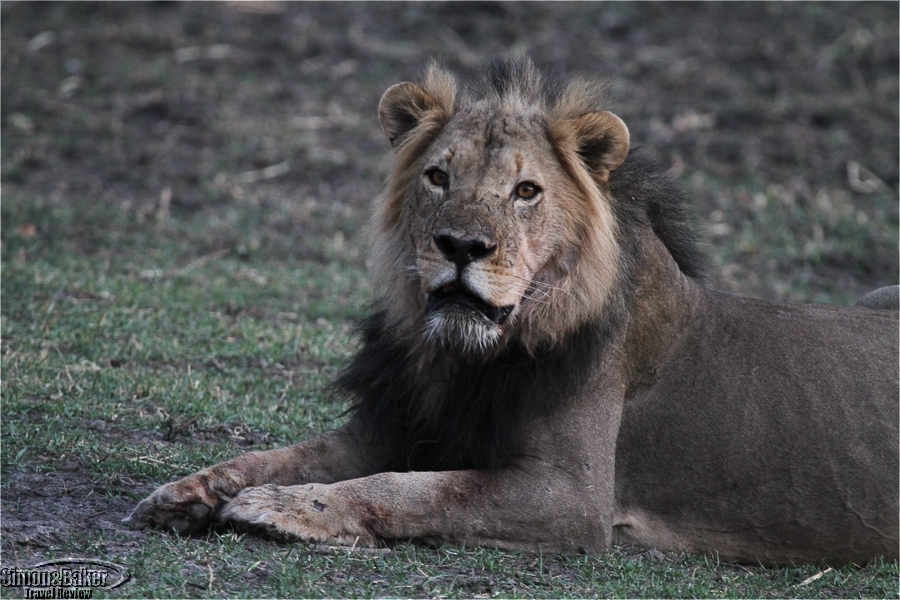
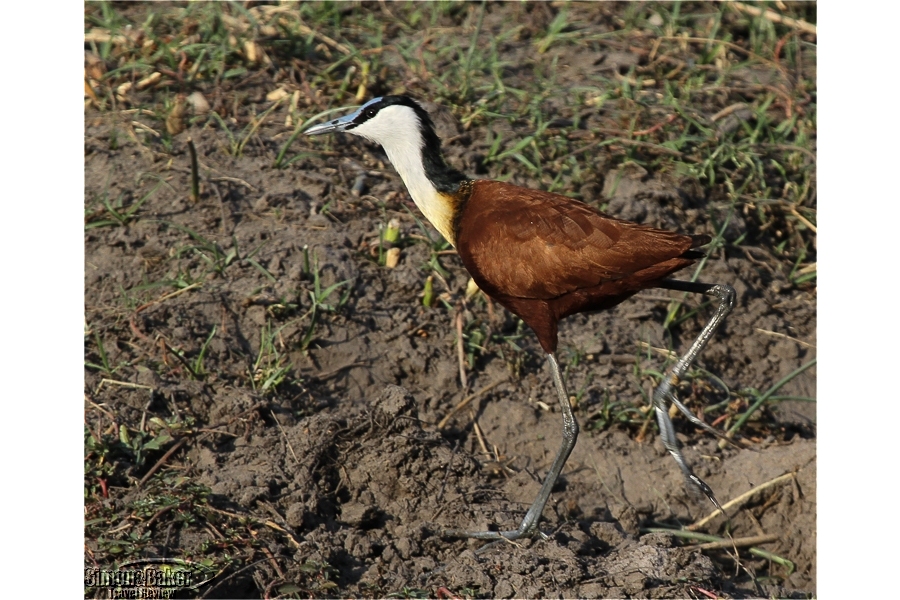
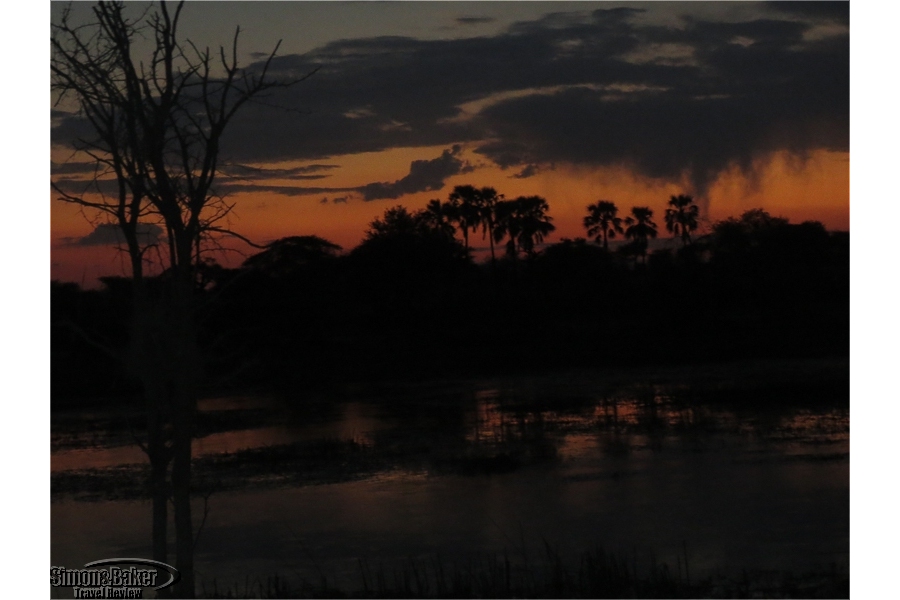
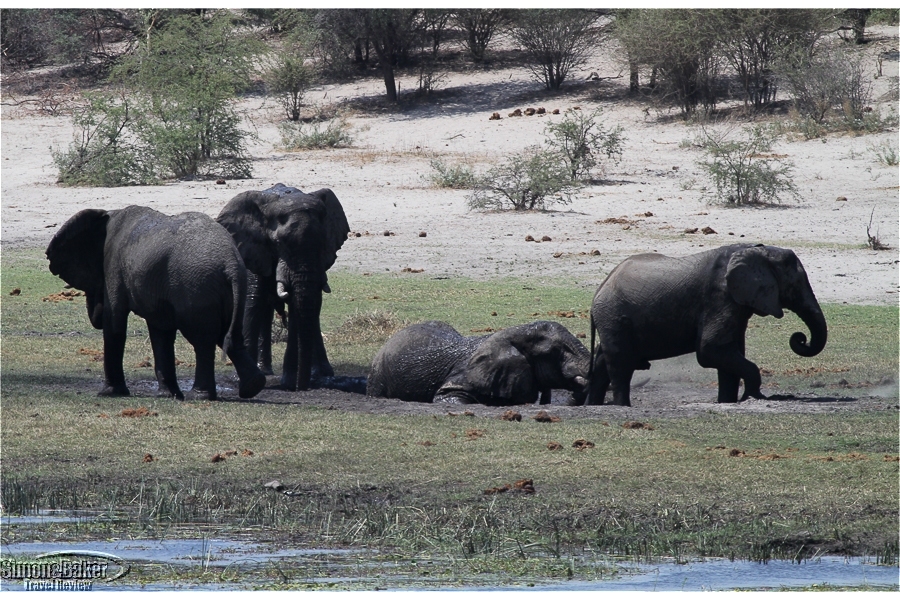
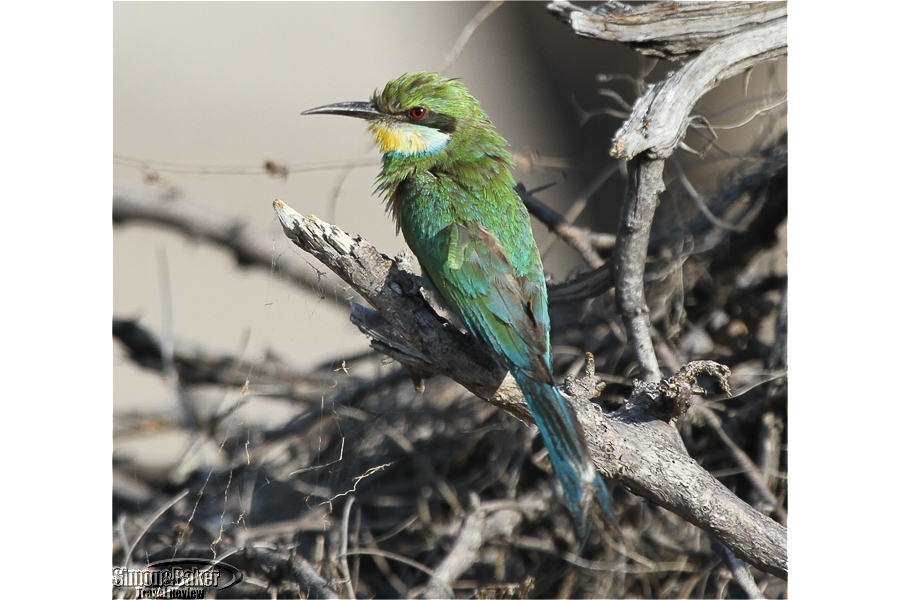
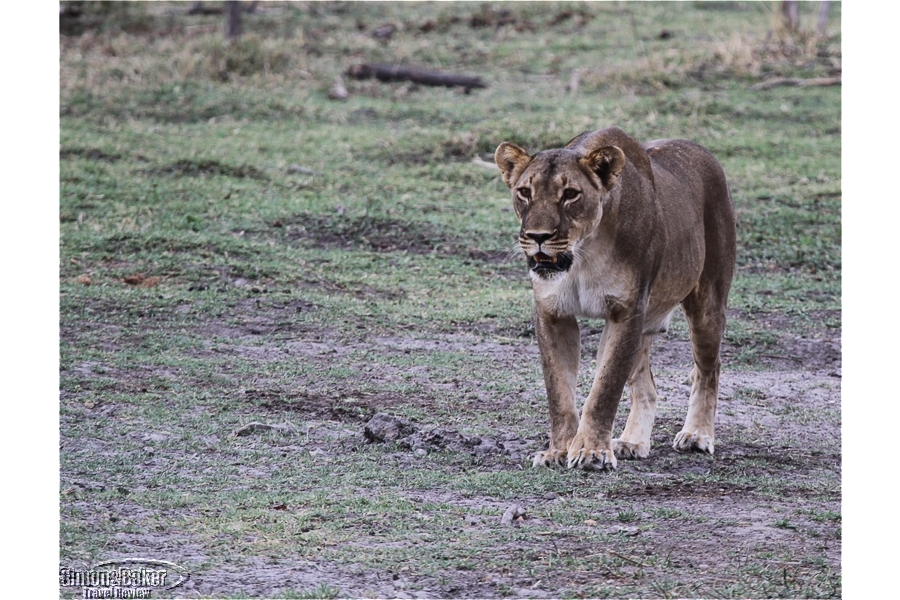
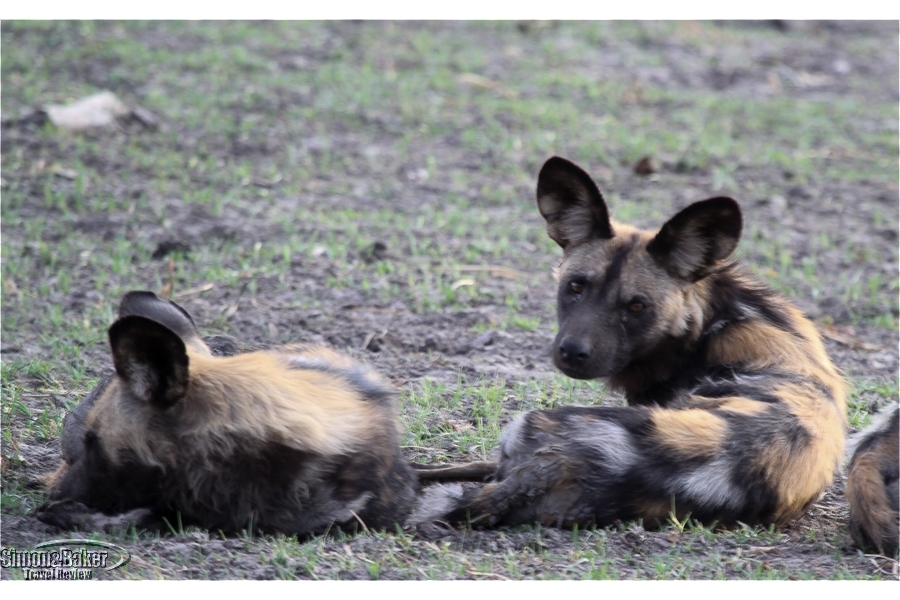
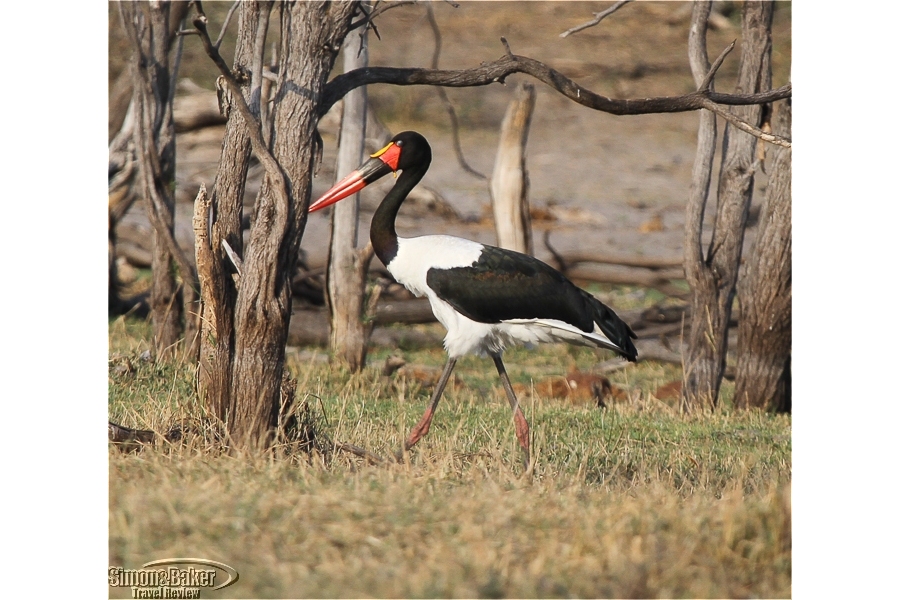
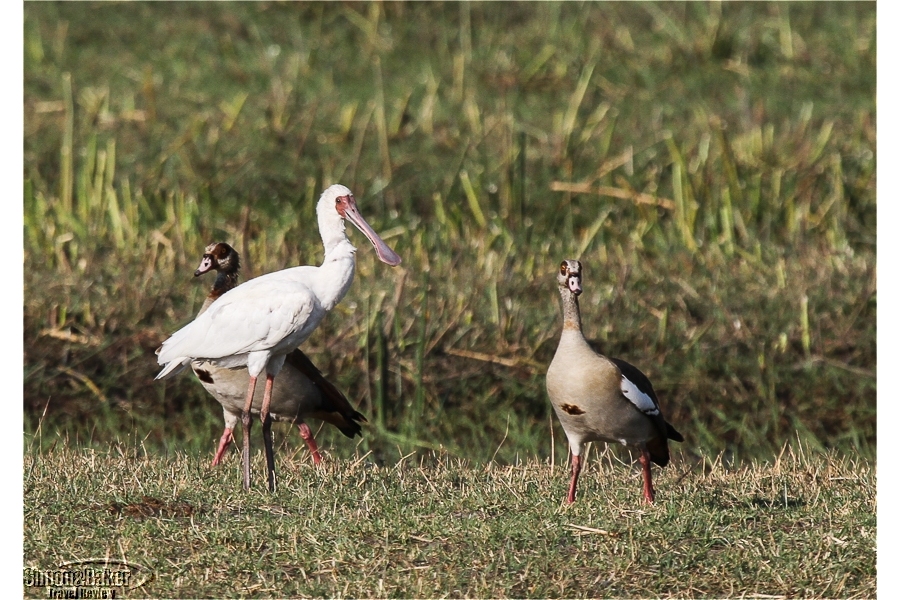
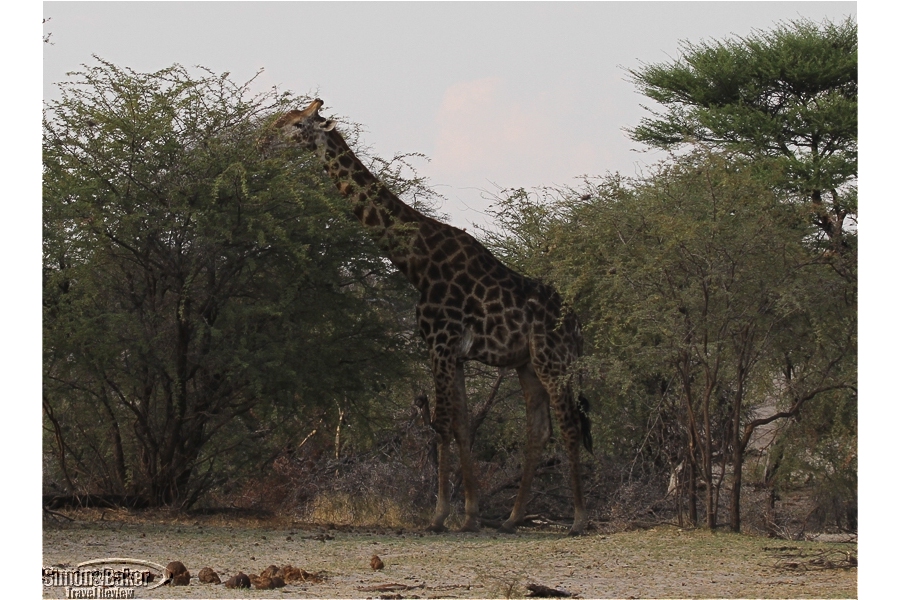
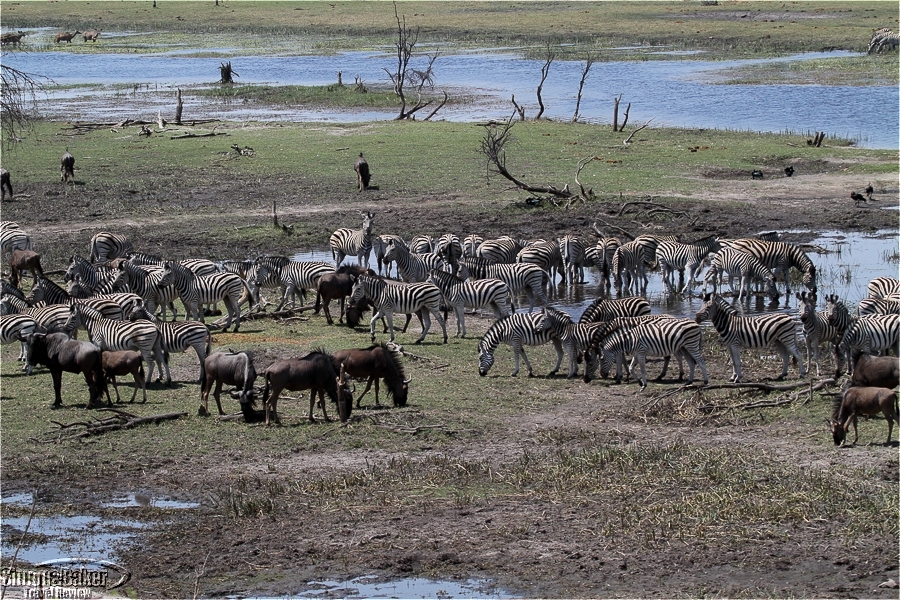
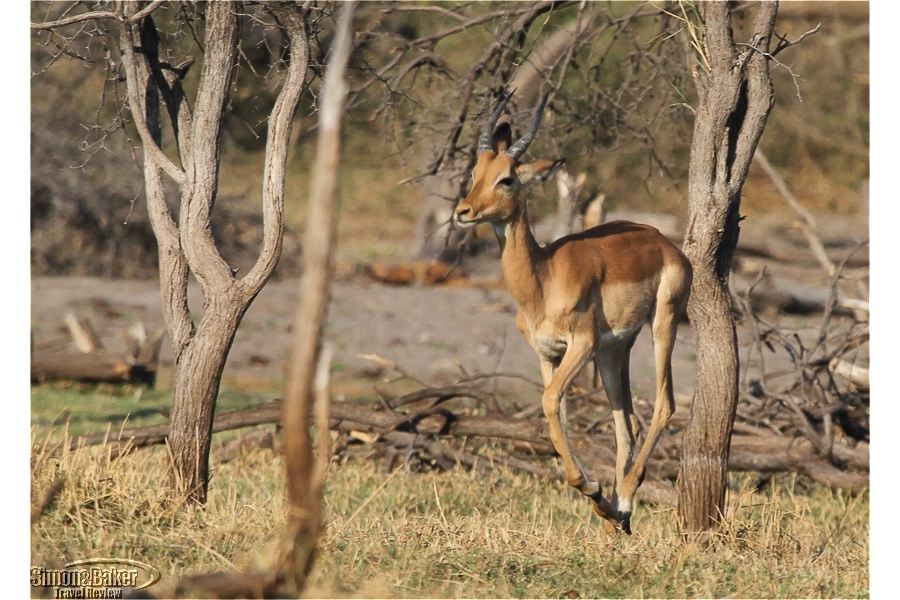
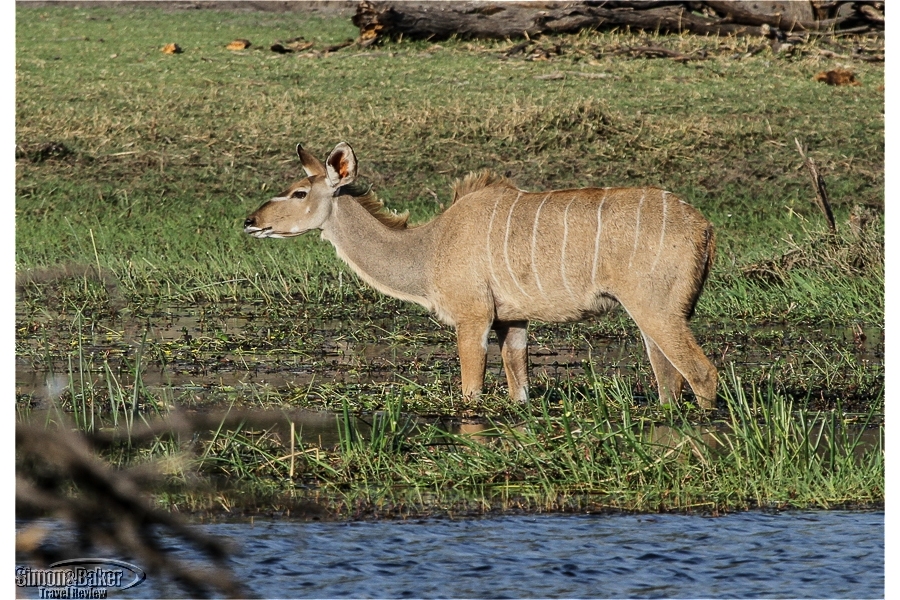
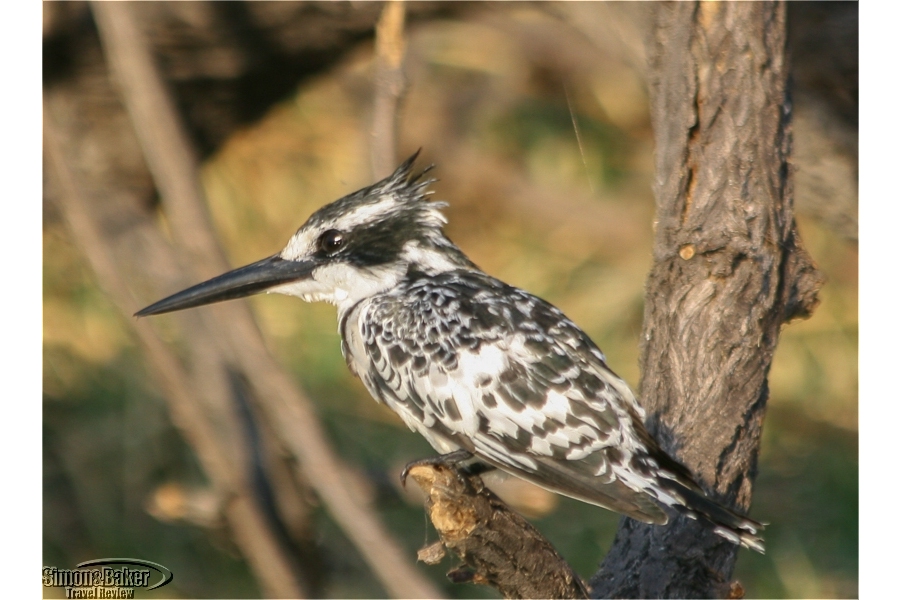
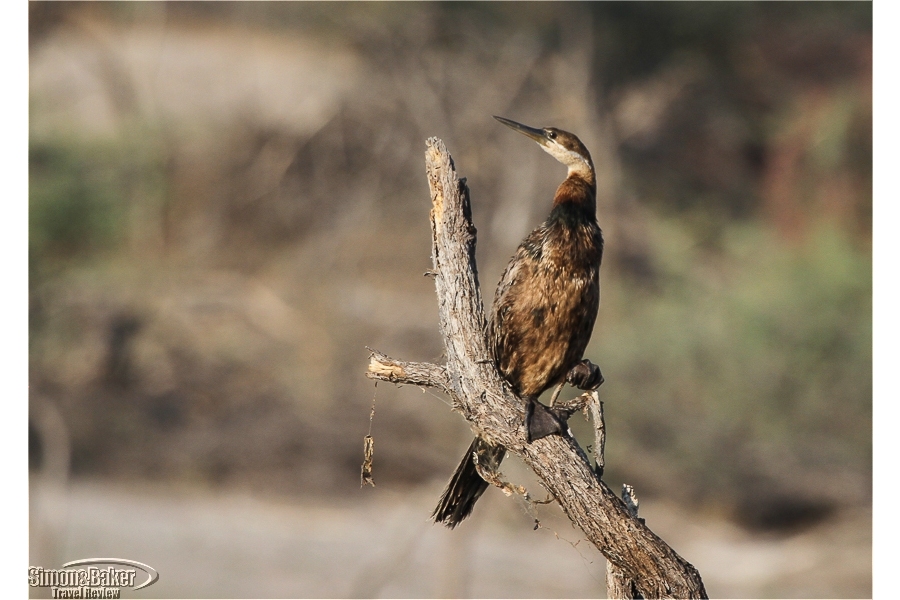
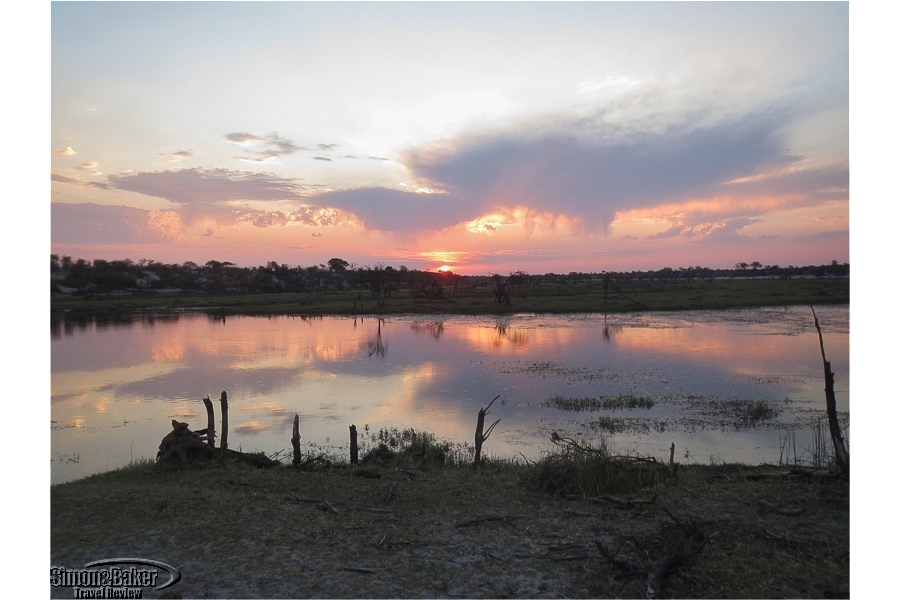
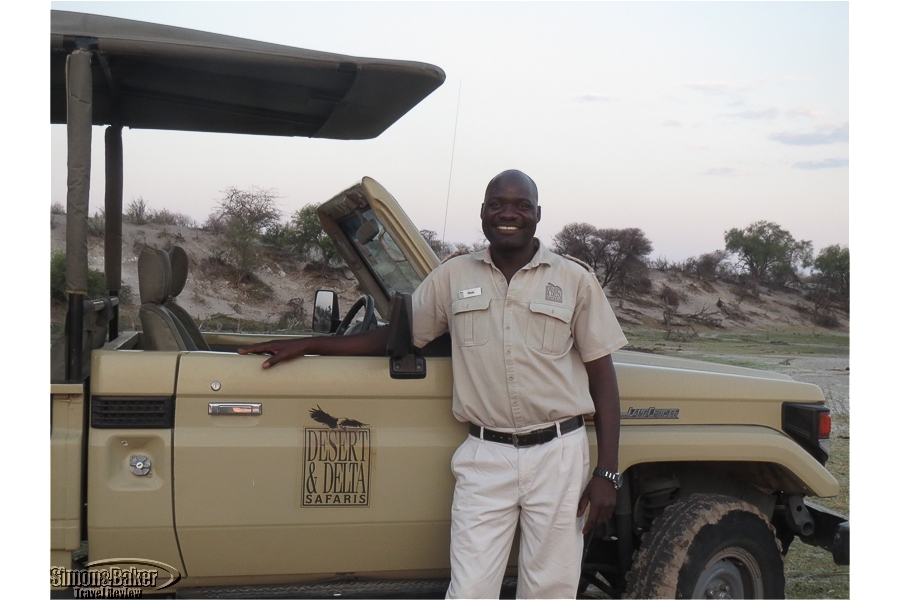
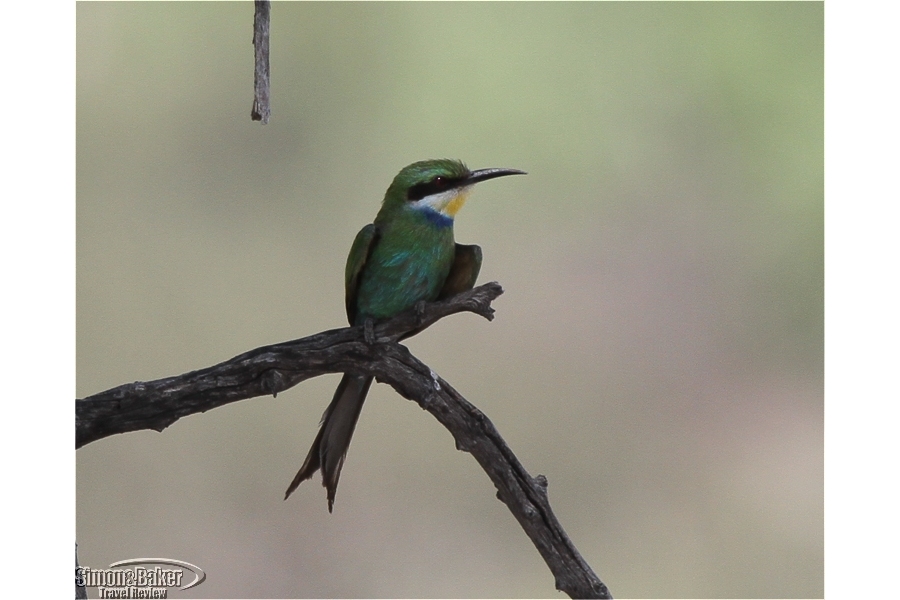
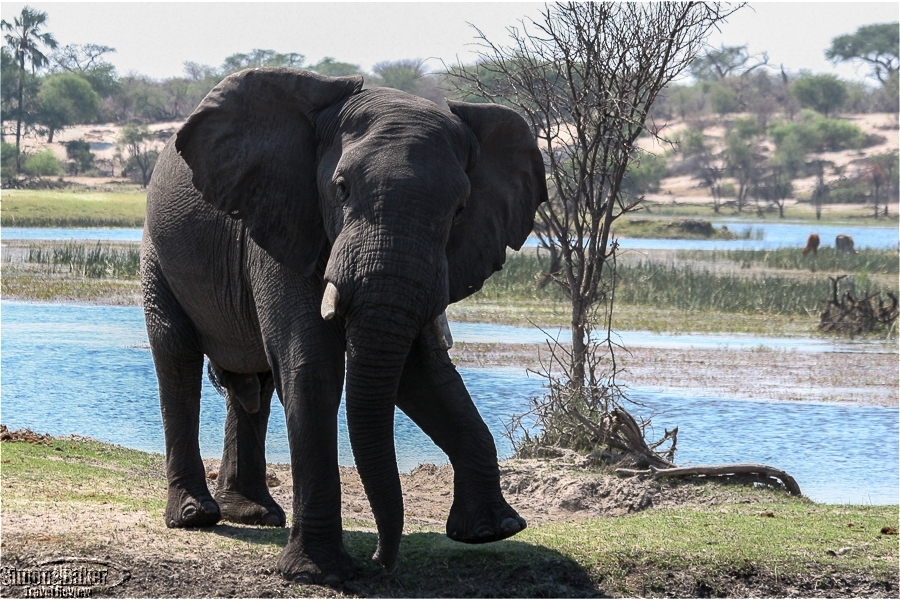
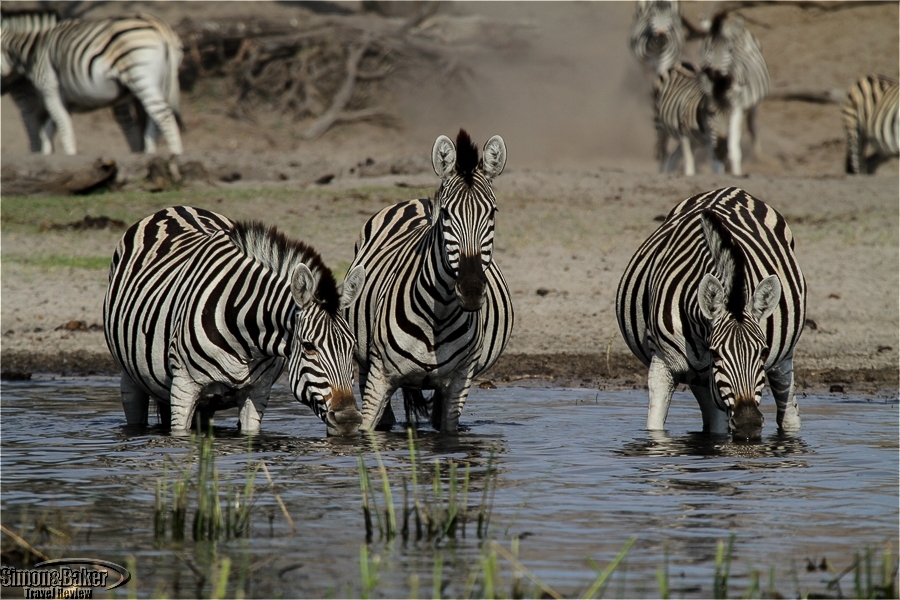
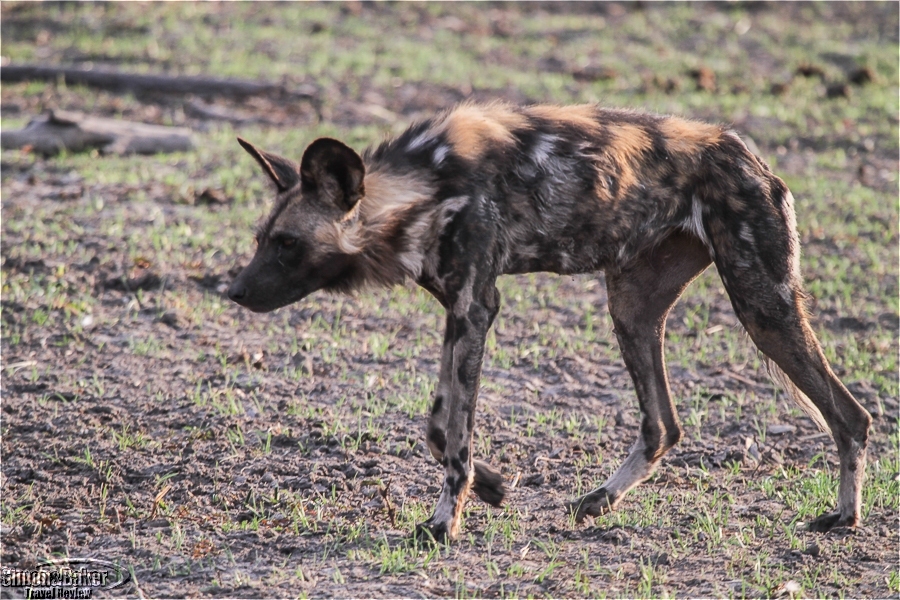
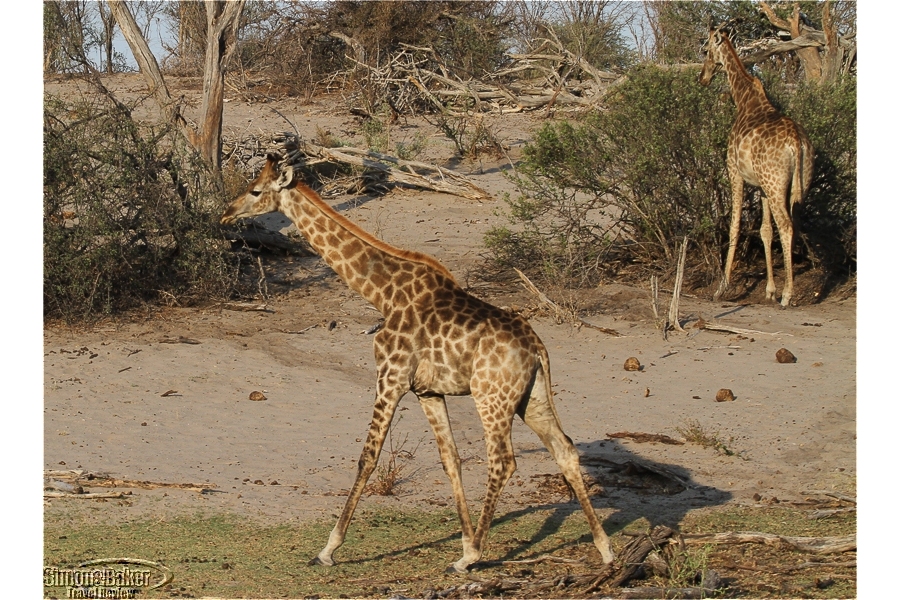
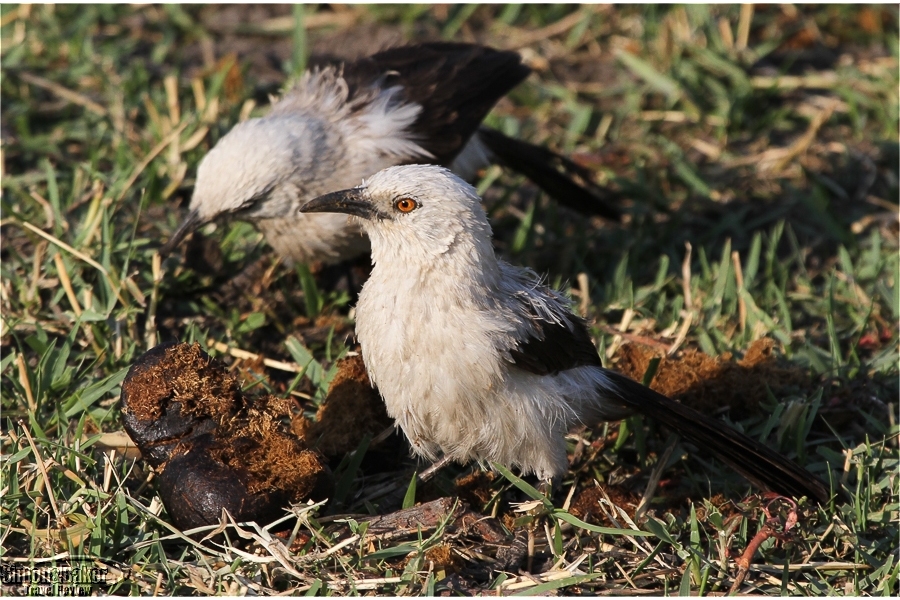
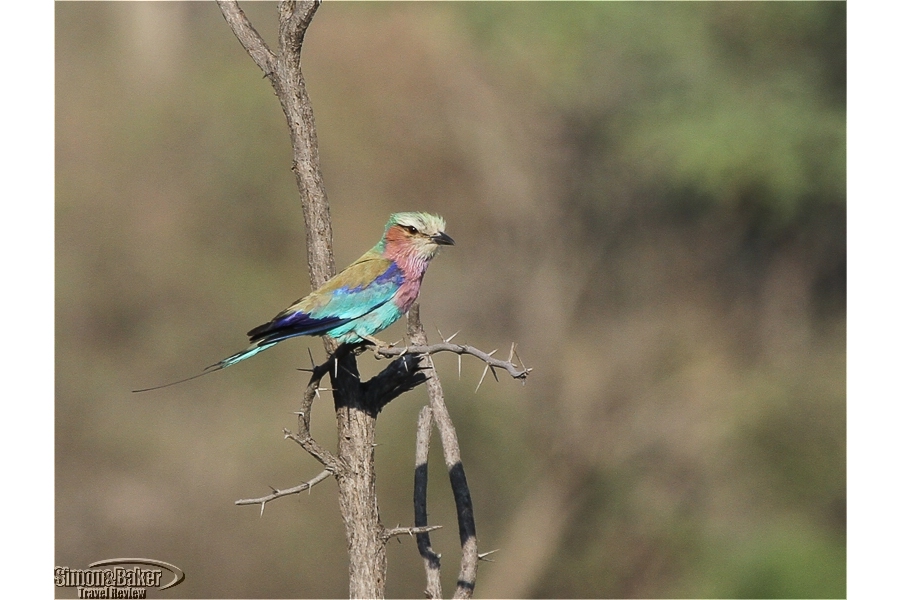
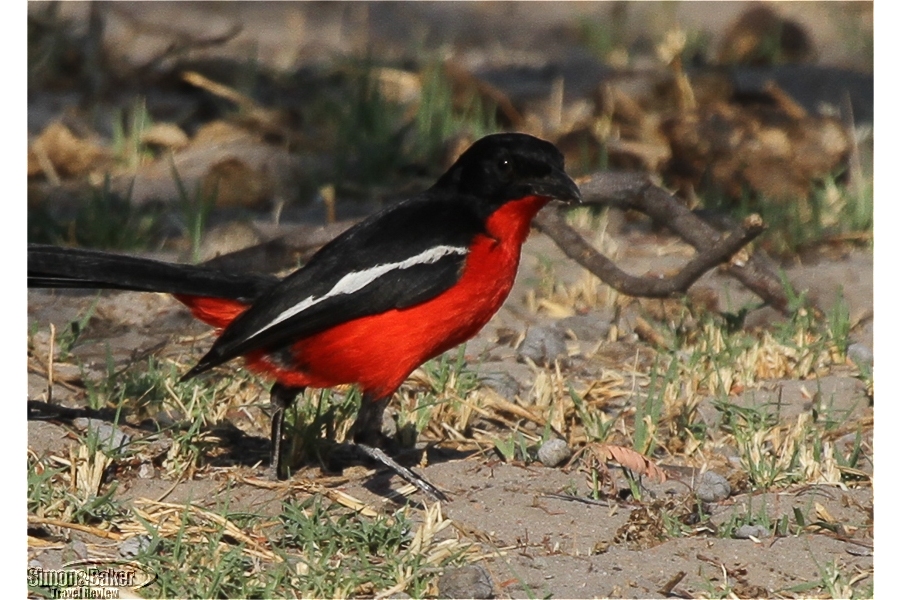
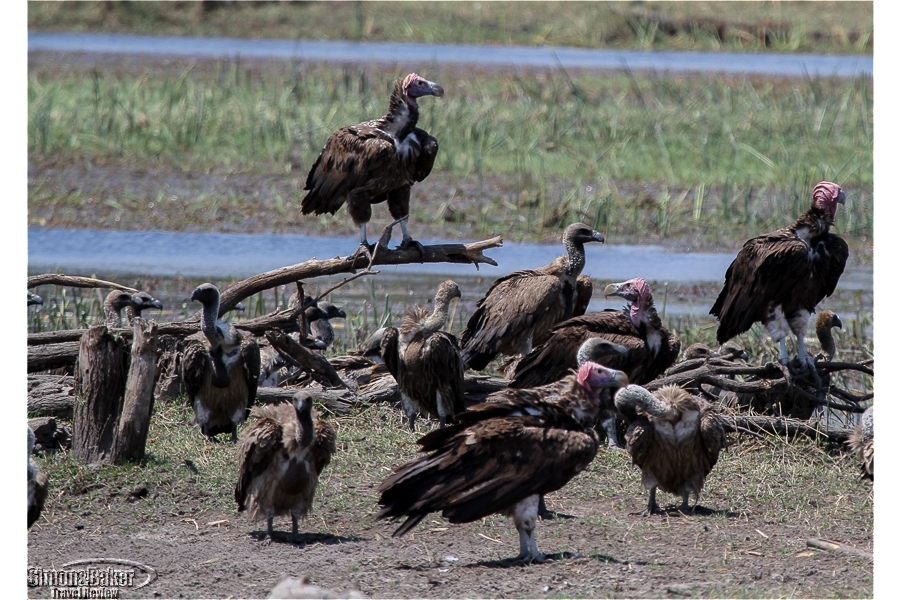
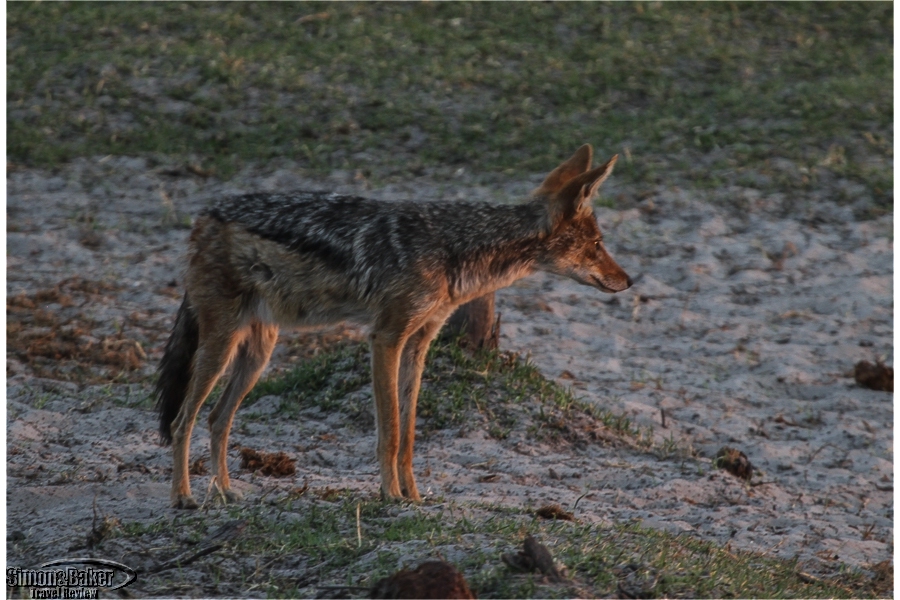
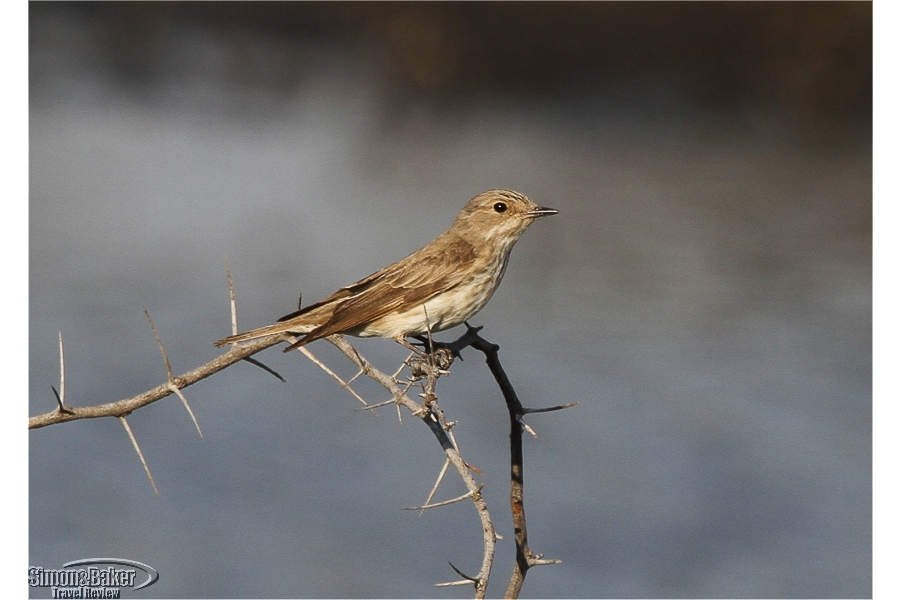
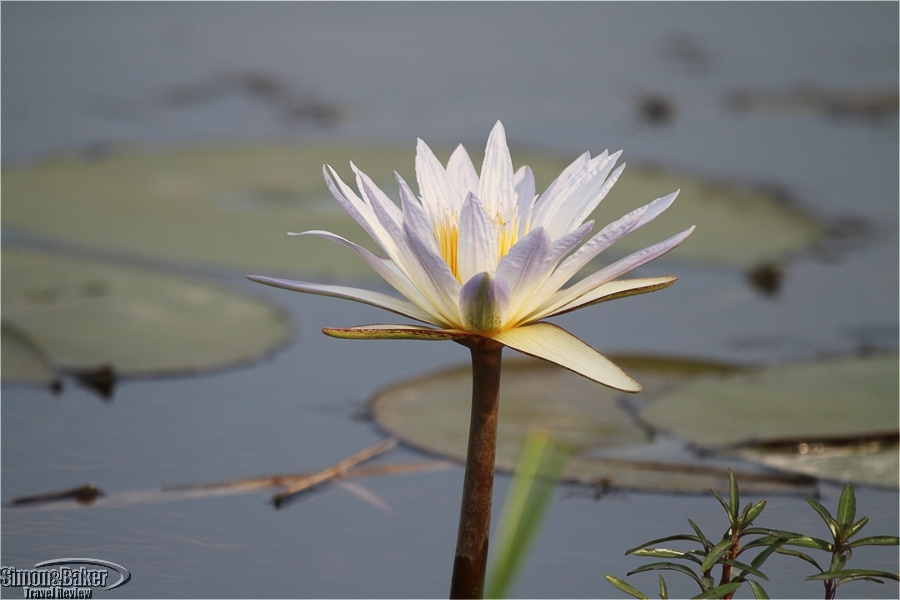
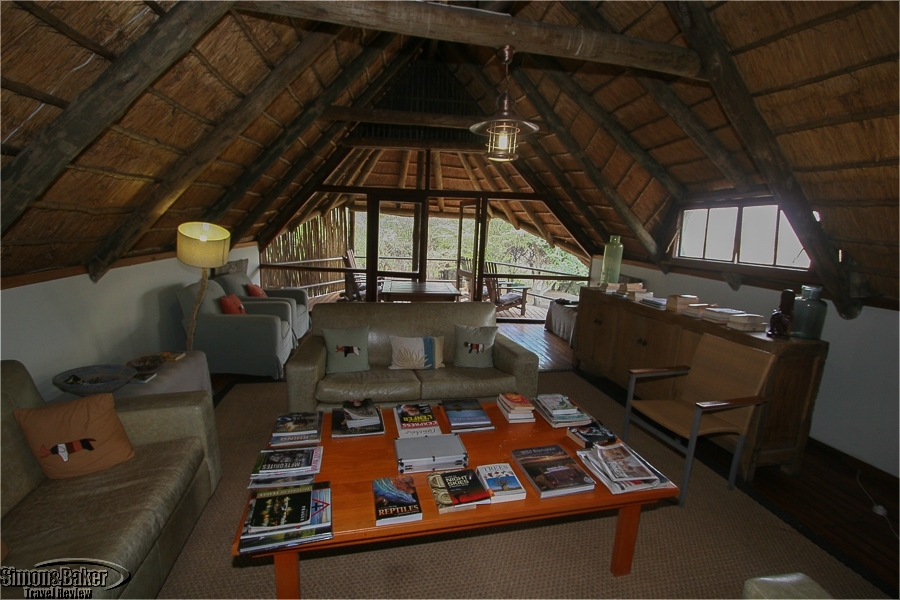
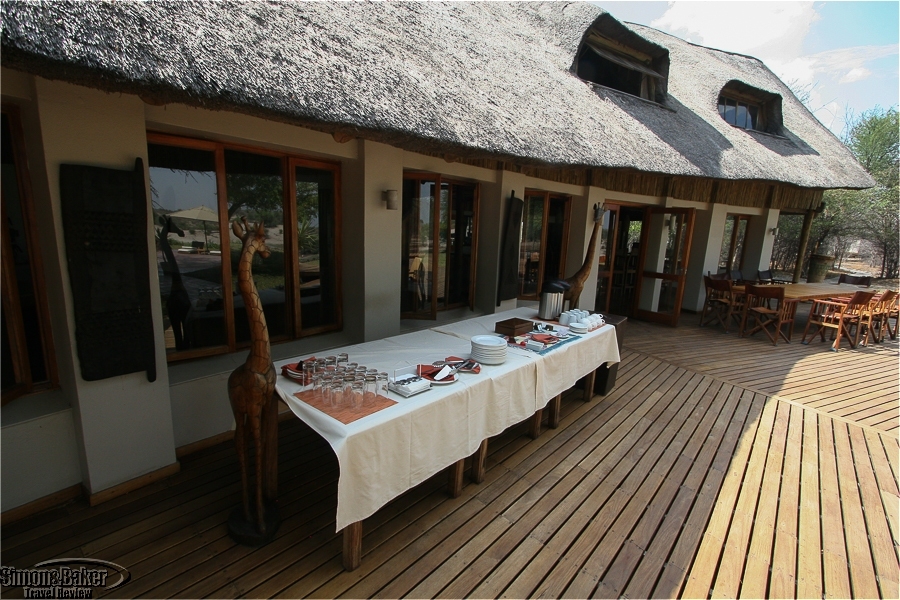
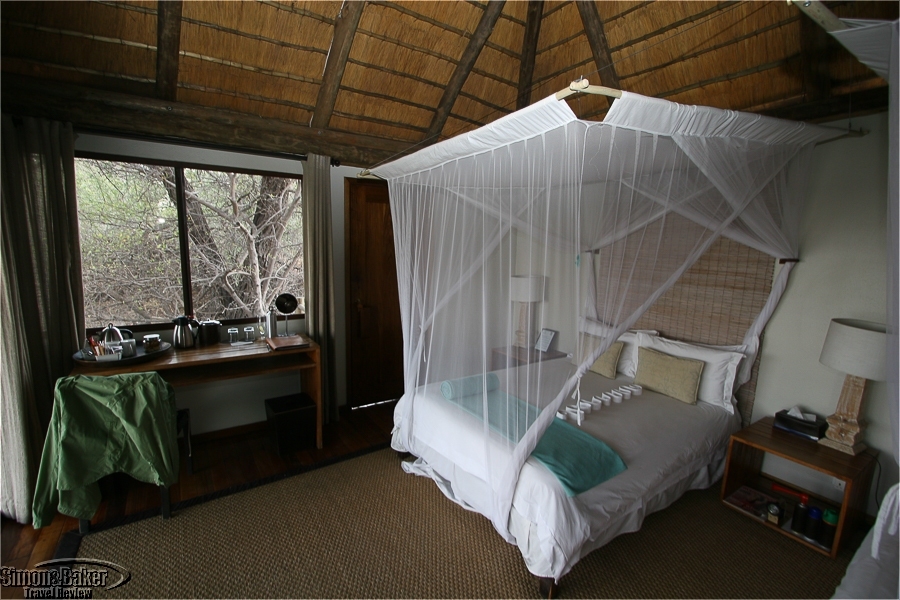
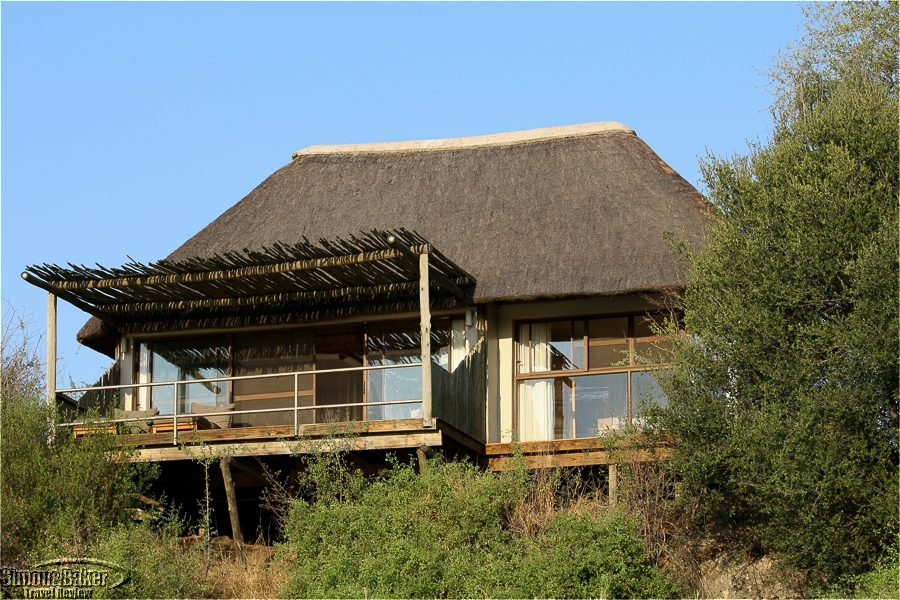
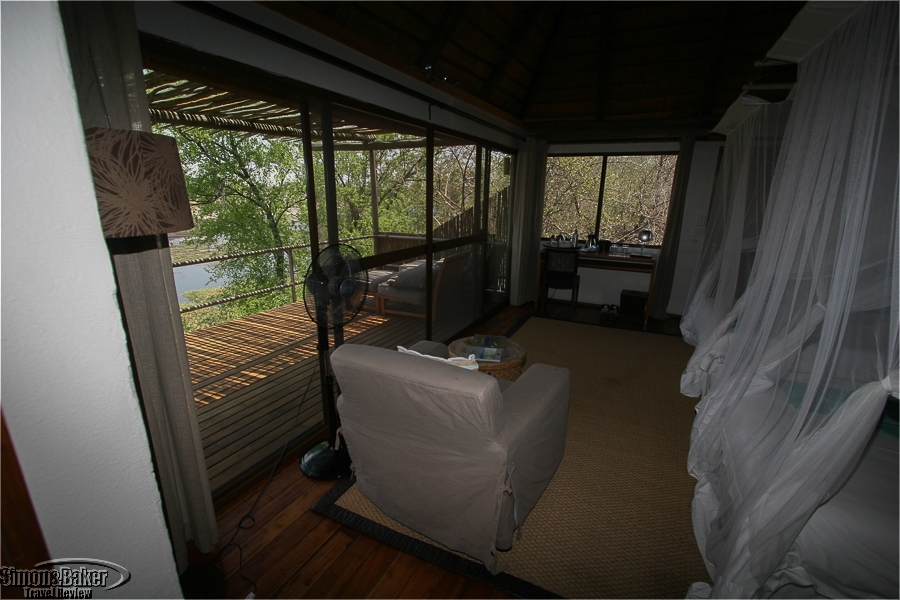
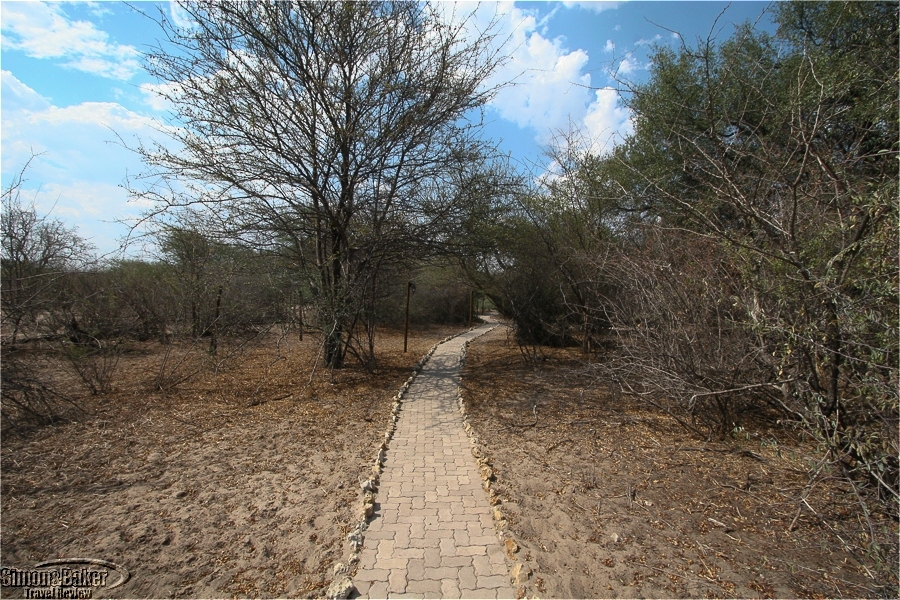
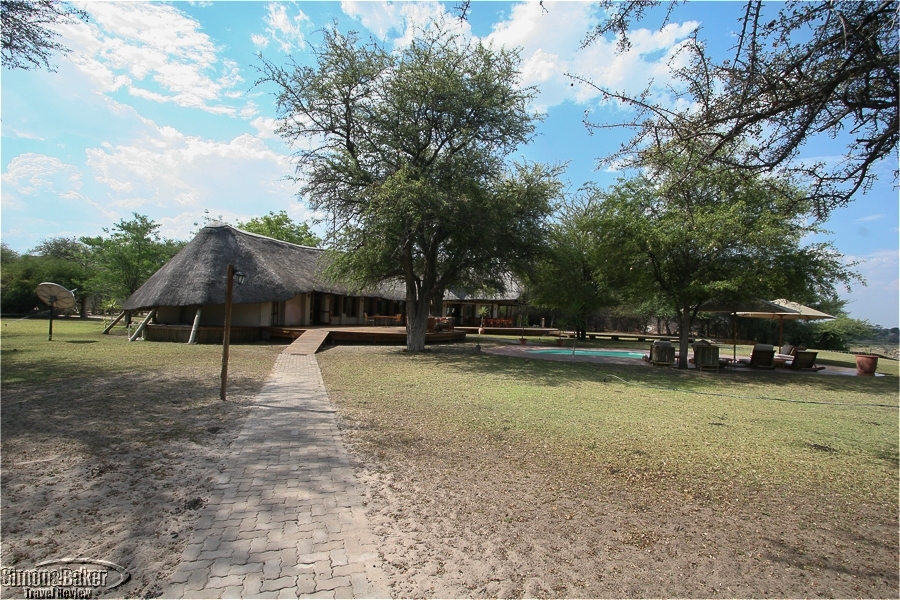
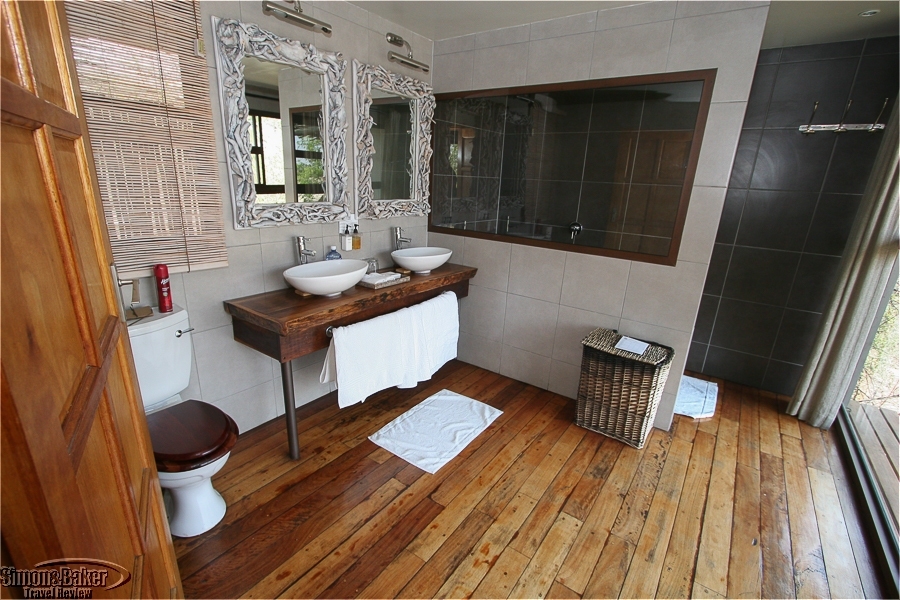
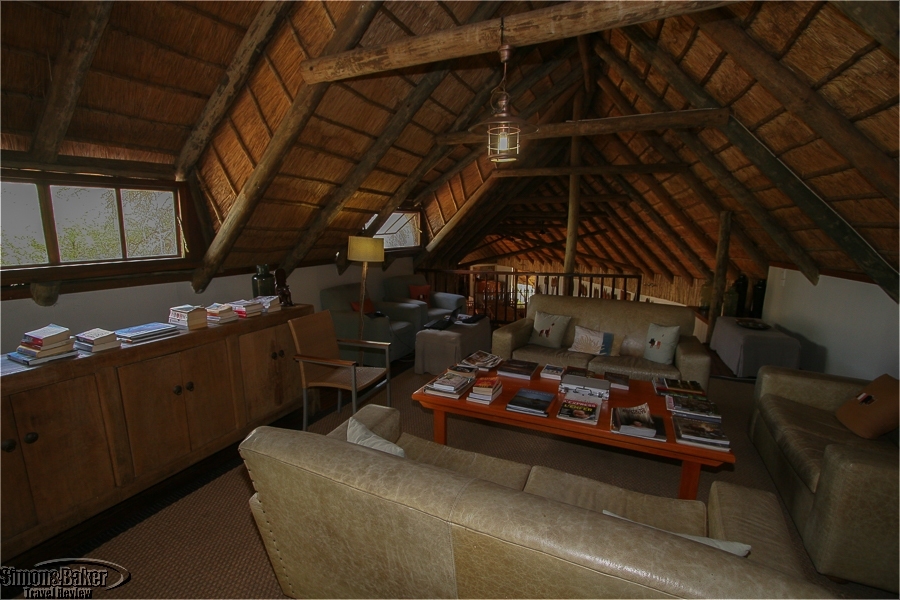
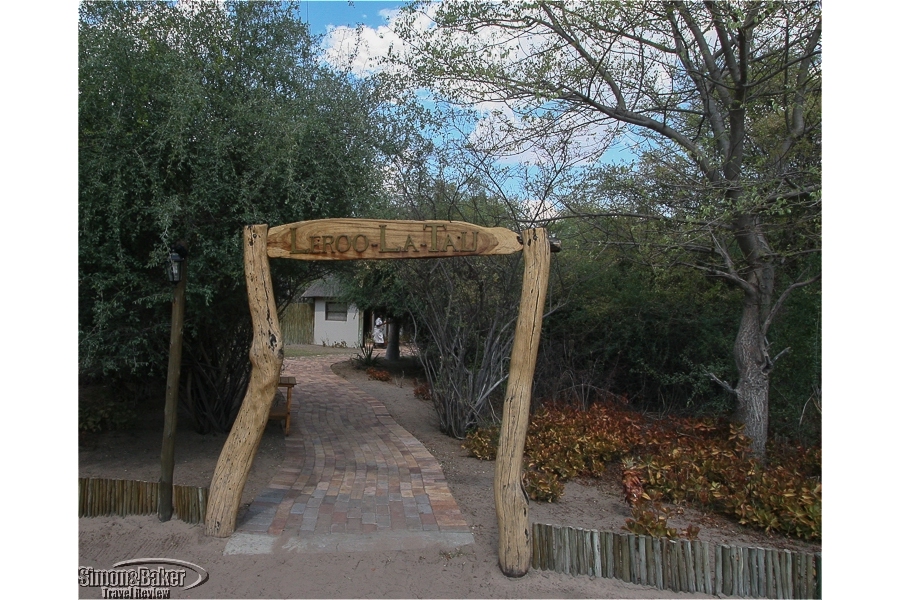
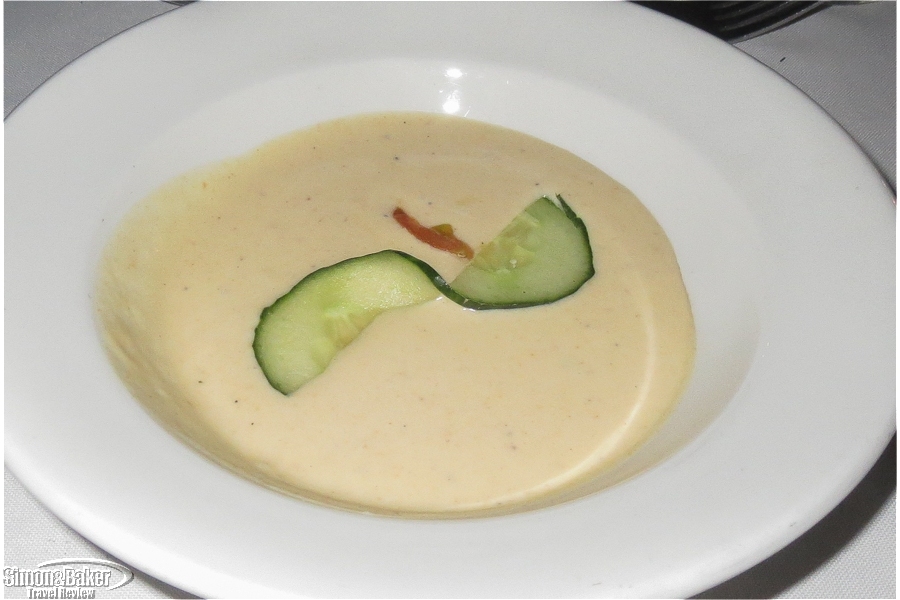
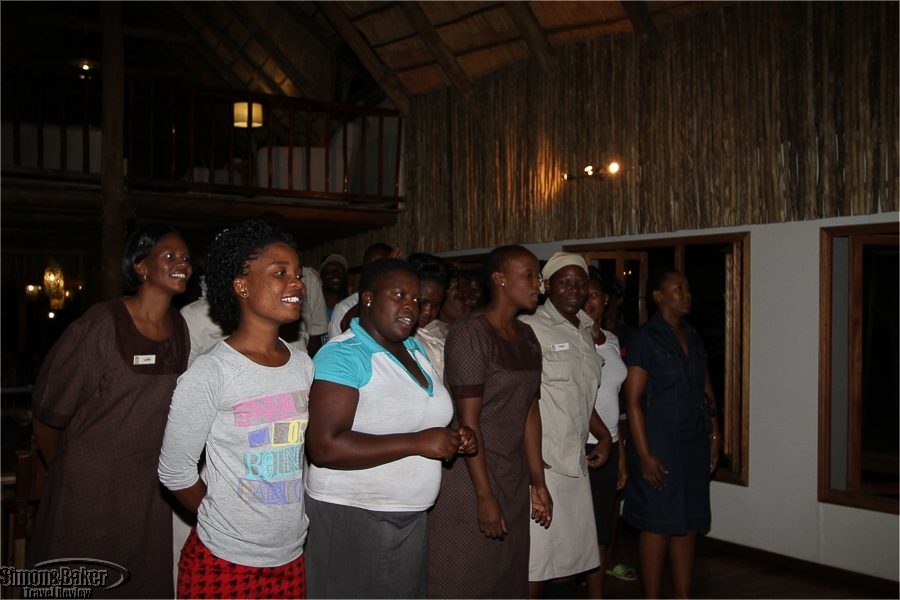
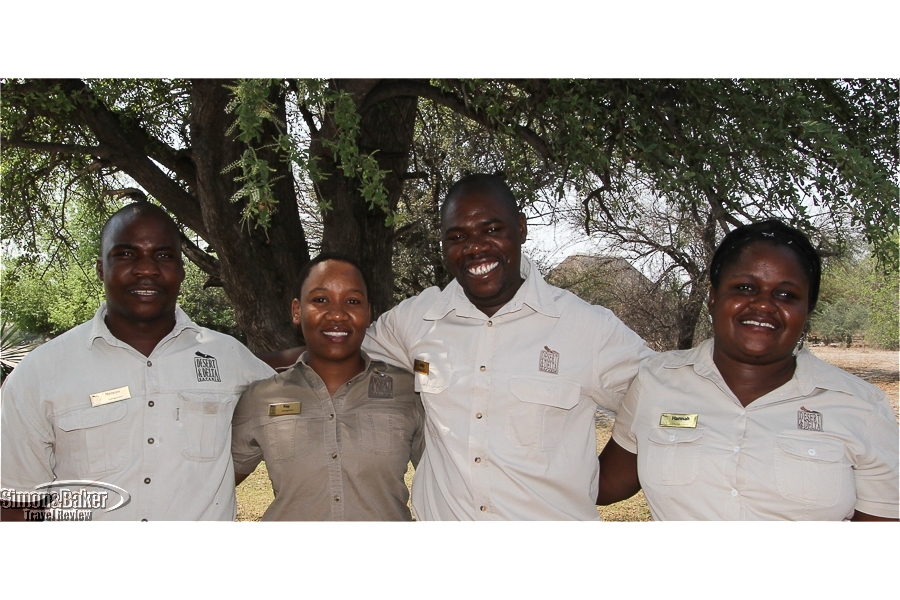
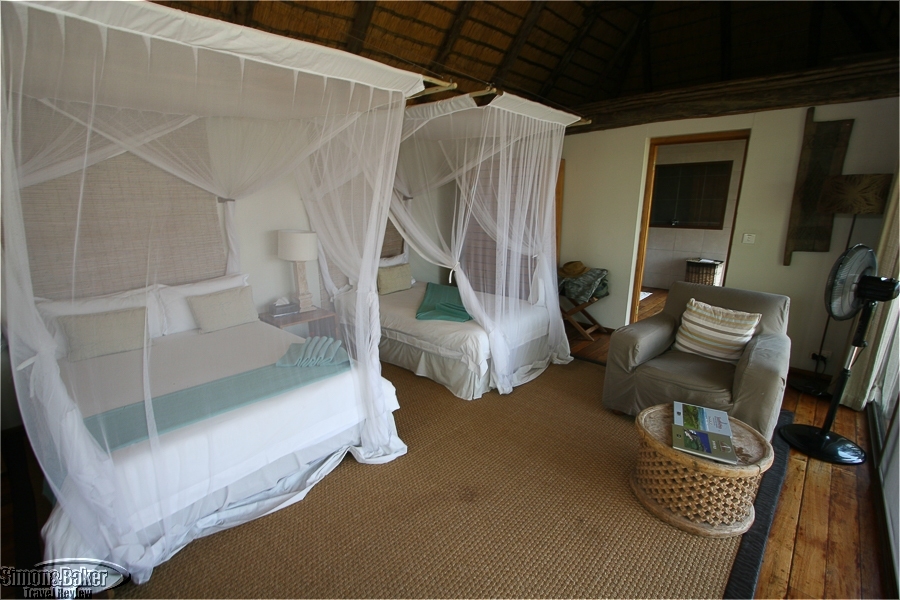
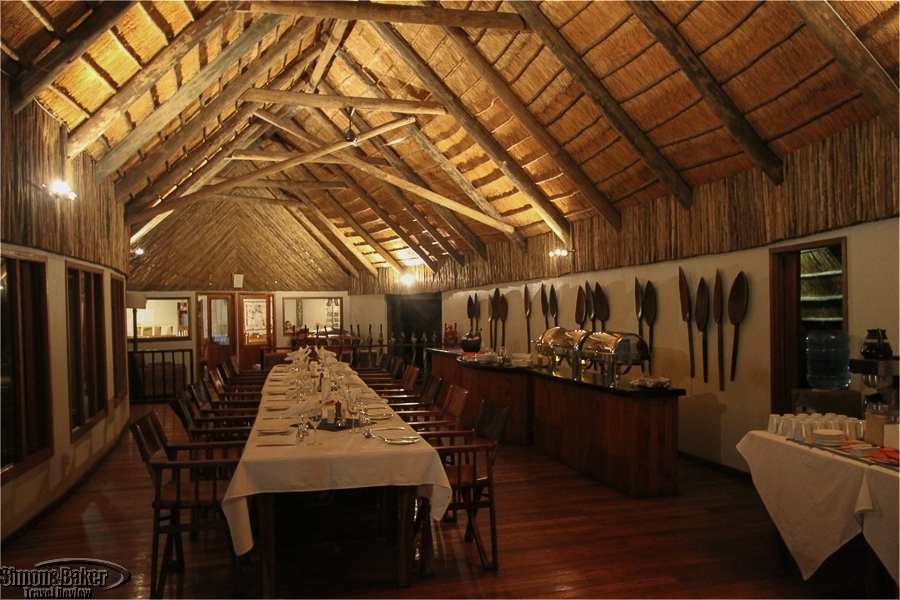
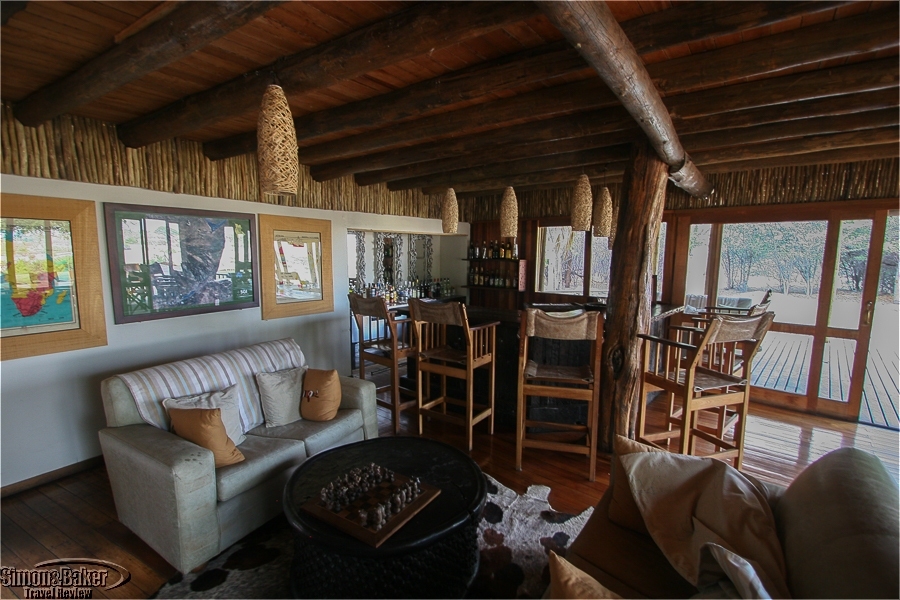
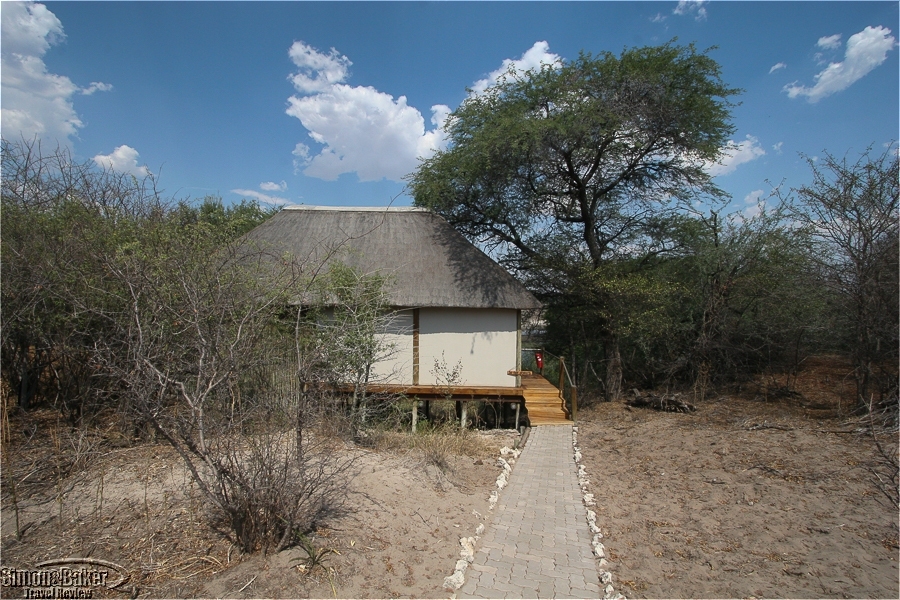
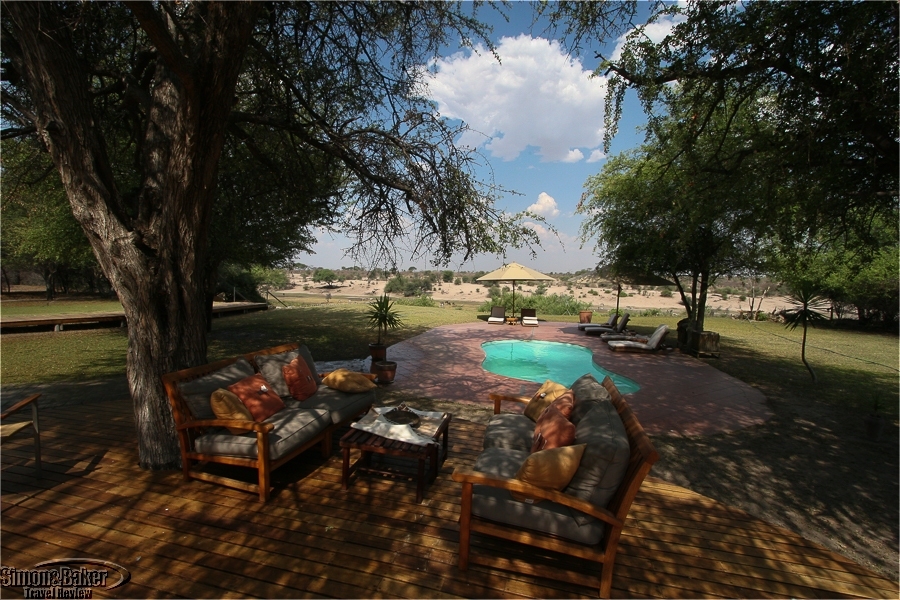
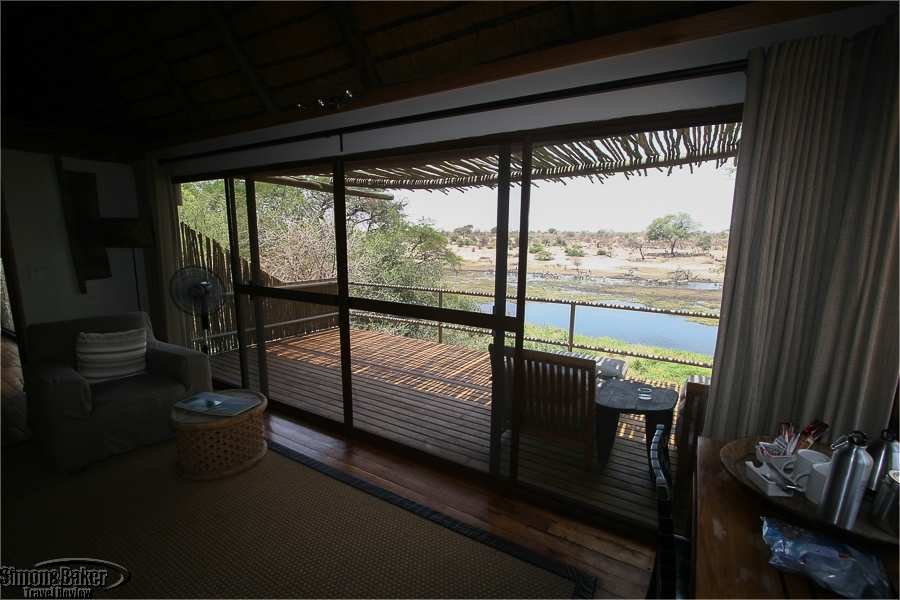
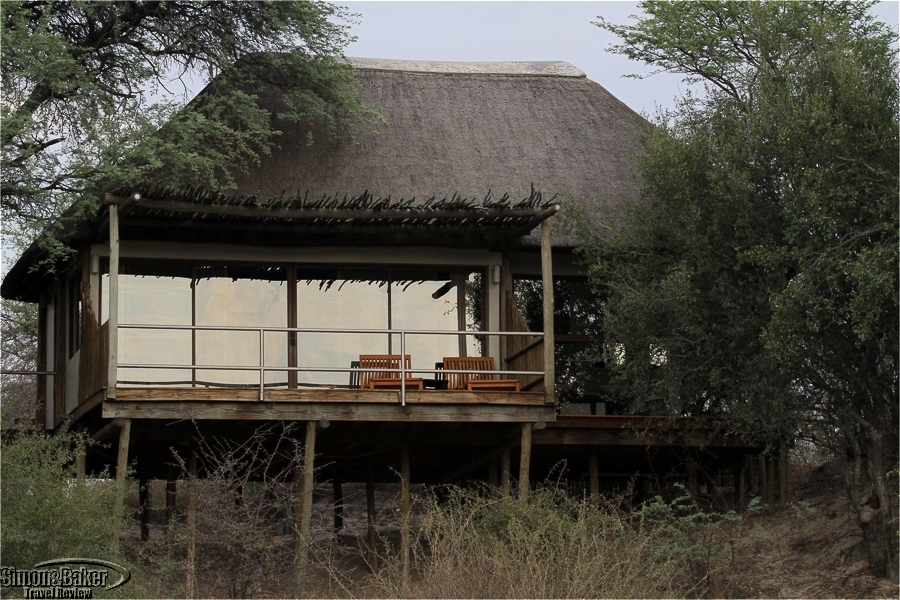
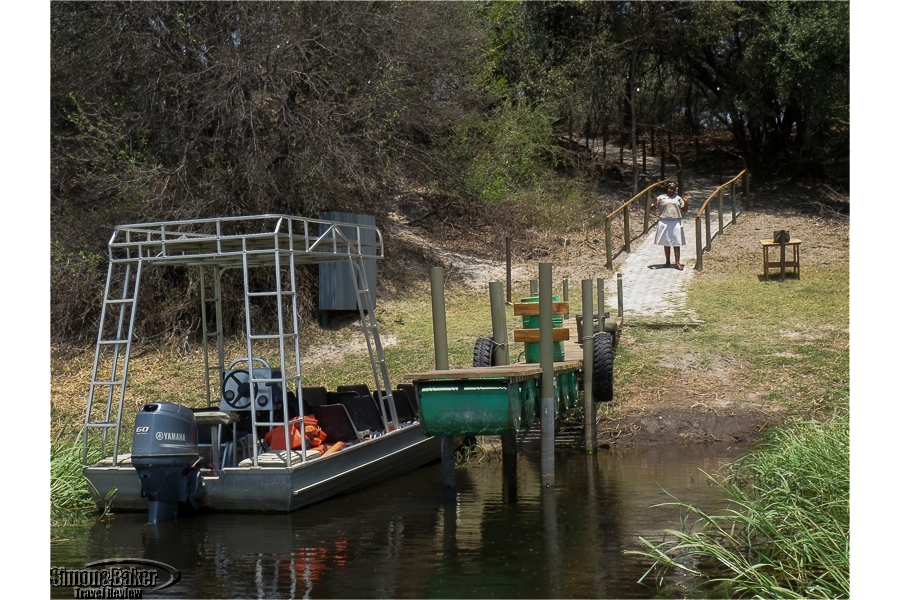
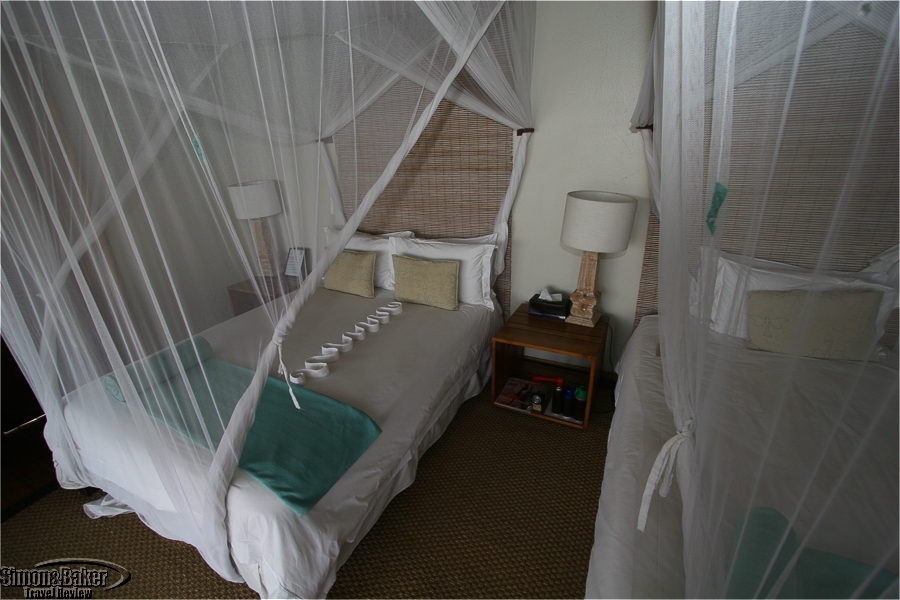
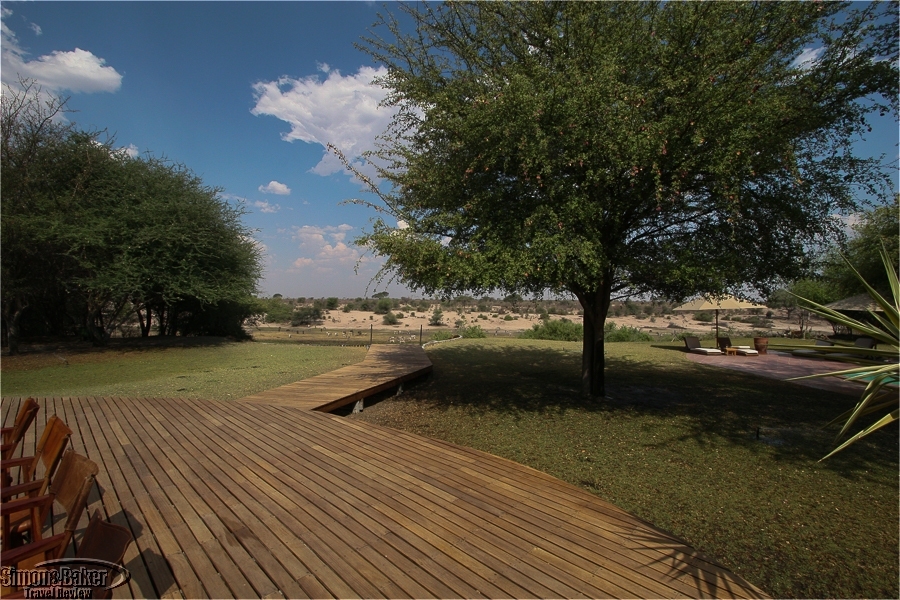
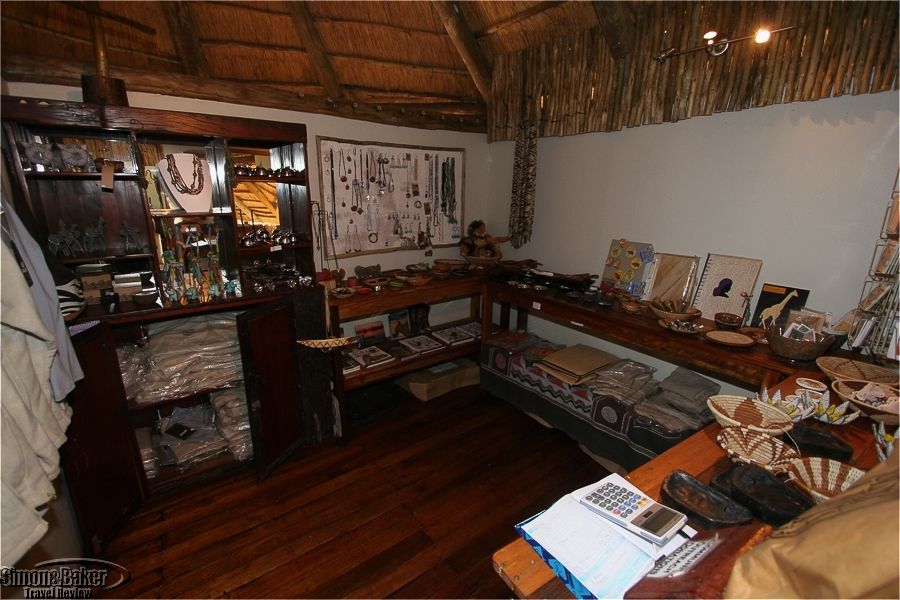
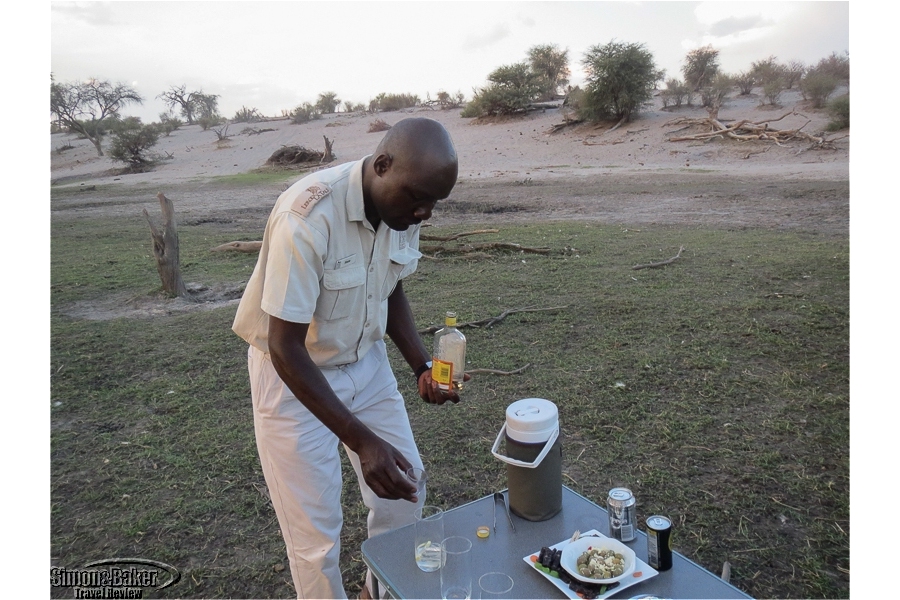
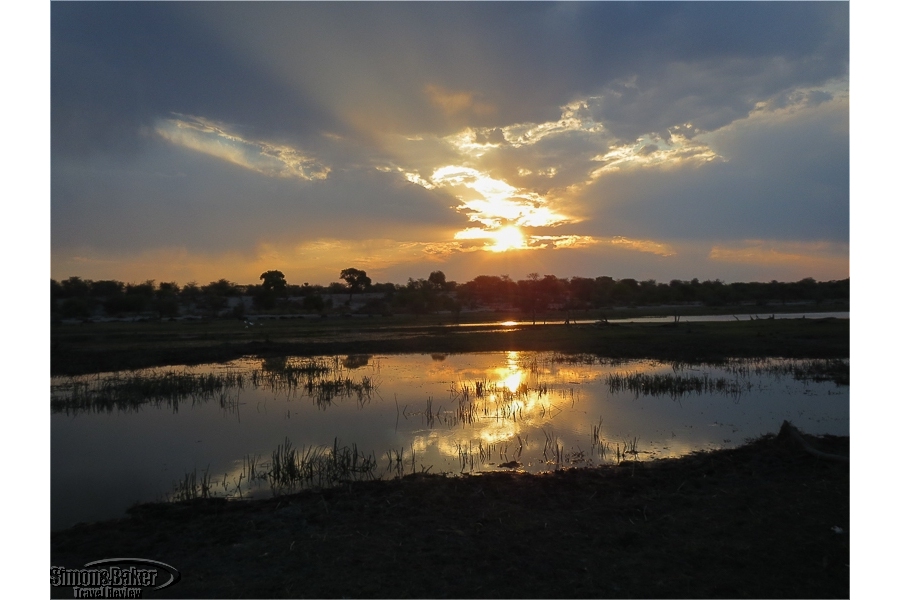
- Overall Impression
- Details
- Common Areas
- Accommodate
- Room
- Dining
- Features
- Wildlife
- Activities
- Other
- Review
When I think of Leroo La Tau, which means lion’s paw in the local language, the first memories that flood my mind are of memorable game viewing and beautiful riverside sunsets in the company of Slade Mmegwa, our favorite guide that trip. I remember mauve sunrises across the water from the deck of my tented room, and tens of dozens of zebra and wildebeest feeding in the shallow river during their seasonal migration. Our brief boat rides and longer game drives, especially on the first two days, afforded us excellent birding and game viewing opportunities. In addition to our first sighting of the zebra migration, we saw two of the Big Five during our stay. On our initial drive, for example, we had good sightings of lions and wild dogs.
Crowding the pleasant reminiscing are also thoughts of discomfort in the sweltering suffocating heat with hardly any respite for the entire duration of our stay. The property, which relied on daytime generator power, was ill equipped for the intense heat wave that blanketed the region driving daytime temperatures past 45 Celsius (113 Fahrenheit). Breezes that could have been cooling under different circumstances felt like blow dryer air, and the punishing rays of the sun made sitting outdoors uncomfortable and debilitating.
Indoors, our rooms, sealed during out absence for game drives, were super heated, making every surface hot to the touch and causing what little ice we had to melt within minutes. Several fellow guests became unwell with heat stroke and dehydration, often failing to recognize the signs until they were forced to stay in from the twice daily safari activities. But for the kind intervention of one of the staff I too might have had to forego the outings. We liked Leroo La Tau for its pretty river fronting rooms with a view, abundant buffets, passionate and attentive guide, and worthwhile game viewing. We would return in a cooler season.
Class of Accommodation Luxury Tented Camp
Connectivity There was cell phone service. There was a one very slow computer for shared guest use in the library with a megabyte, 1-100 kilobytes per second internet connection.
General Manager Bruce Petty. Four individuals shared management duties while we were there: Kay, Hannah, Action and Nelson.
Handicapped Access The property could accommodate handicapped guests in wheel chairs in wheel chair friendly rooms and pathways.
Length of Stay Three nights
Location The property was situated on leased land adjacent to the Makgadikgadi National Park. It was a 90 minute flight from Johannesburg, South Africa to Maun. After flying 35 minutes in a small plane we arrived at the airstrip at Leroo La Tau. From there, a staff member picked us up for the 25 minute drive to the camp.
Owned and Managed Desert & Delta Safaris, which was owned by Chobe Holdings Limited, owned the lodge. As of August 2015, the directors of Chobe Holdings Limited, a company incorporated in Botswana, were P. M. Van Riet-Lowe, chairman, J. M. Gibson, deputy chairman and chief executive officer, J. A. Bescoby, A. D. Chilisa, B. D. Flatt, R. Gerrard , K. Ledimo, J.M. Nganunu-Macharia, D. S. Ter Haar, and A. M. Whitehouse.
Size There were 32 employees, including five guides, working in the 60 hectare property with 12 Luxury Tents. The lodge had traversing rights to 700 hectares within the national park.
Year Opened and Date of Most Recent Renovation The property opened in 2008.
Outside, an open wood deck furnished with patio furniture, faced green lawns, the small swimming pool, a fire pit and viewing deck, the Boteti River, and on the opposite shore, the Makgadikgadi National Park. A handful of steps down from the deck and to the left and right a dirt path led to the 12 guest rooms. Access to the dock for river activities was down a cement pathway adjacent to Room 9.
Our rooms, decorated in earth tones, were divided into three main areas, bedroom, bathroom and outdoor deck. Besides opening the sliding glass doors in the bedroom and windows in the bathroom, the only means to control the temperature was via a single upright fan plugged across the room from the beds (it was off at night when the generator was shut down). Any time we were out of our rooms we had to close the doors to lock out animal visitors. The lack of ventilation in the rooms, which remained closed for the better part of the day, caused the rooms to accumulate heat.
My tent, Room 10, had two beds, one double and one single. My travel partner’s tent, Room 11, had two double beds, each the size of two twin beds combined. Surrounded by open white mosquito netting that hung from a wood frame, they sat atop a fiber rug and were book ended by identical wood night tables with lamps. Pretty towel arrangements and leaf writing adorned each bed, inviting us to “Enjoy LLT” and “Feel at Home.” Artificial light was provided by two sources, track lights that ran on generator power and battery operated lamps for when the generator was off.
Additional furnishings included a comfortable cloth armchair, round table, vanity mirror, armoire, wood table and companion armless chair. Atop the table there was a hot beverage service, an ice bucket and thermos. On the round table there were also safari magazines, a property folder and complimentary safari booklets for guest use. The rear of the rooms was covered with glass windows and sliding glass doors, which maximized their lovely views of the Boteti River and the Makgadikgadi National Park across the water. Gauzy khaki curtains could be drawn for privacy although they did little to diminish the heating effects of the sun. There was a partially covered, with reed, wood deck extending out over the incline of the river bank. It was wide enough to accommodate two comfortable cushioned wood lounge chairs and a small table. Sunlight splashed the deck most of the day. The combination of sunlight and high temperatures made it impossible to spend more that a few minutes on the deck during the day. Even in the early dawn hours the deck was less than comfortable. At night we were advised to remain within our rooms at all times, except when escorted by the staff to and from meals.
Facilities There was a swimming pool. In the main building, there was a library and internet room, dining room, bar and curio shop.
Pool There was a 1.5 meter deep outdoor pool about 7 square meters large with terrazzo tile flooring surrounding it. The pool area had a splendid view of the river. There were six lounge chairs with cushions and two large canvas umbrellas that provided shade to the pool deck area. A small tree provided a modicum of shade to supplement the shade from one of the umbrellas. The water clarity was good. Although we saw someone clean it in the mornings there was usually a film of leaves and small insects on the surface brought by the breeze. Because the pool itself was in the sun during the midday break between our meals it was best to remain under the shade of the umbrellas. A brief dip in the pool went a long way toward dropping my body temperature as long as I didn’t linger under the sunlight
Shop A small shop sold branded clothes, books, crafts and locally made curios.
We saw the following animals during the game drives: bushbuck, African wild dog, elephant, small spotted genet, giraffe, hippopotamus, scrub hare, impala, black-backed jackal, kudu, lion, Selous mongoose, slender mongoose, vervet monkey, porcupine, steenbuck, wildebeest and zebra. We also saw Nile crocodile, Nile monitor lizard, and community nest spider
We saw or heard the following birds: souther pied babbler, bateleur, white-fronted bee-eater, little bee-eater, swallow-tailed bee-eater, red-billed buffalo weaver, kori bustard, rattling cisticola, coppery-tailed coucal, grey-crowned crane, pied crow, African darter, African mourning dove, fork-tailed drongo, white-faced duck, martial eagle, tawny eagle, cattle egret, African fish-eagle, marico fly-catcher, grey go-away-bird, Egyptian goose, spur-winged goose, southern pale chanting goshawk, little grebe, helmeted guineafowl, hamerkop, African harrier-hawk, goliath heron, grey heron, purple heron, squacco heron, red-billed hornbill, southern yellow-billed hornbill, African sacred ibis, African jacana with chicks, brown-hooded kingfisher, pied kingfisher, woodland kingfisher, yellow-billed kite, blacksmith lapwing, black-crowned night-heron, ostrich, red-billed oxpecker, African palm-swift, paradise flycatcher, Meyer’s parrot, three-banded plover, black-chested prinia, lilac-breasted roller, purple roller, double-banded sandgrouse, common sandpiper, Kalahari scrub-robin, crimson-breasted shrike, magpie shrike, southern white-crowned shrike, southern grey-headed sparrow, African spoonbill, red-billed spurfowl, greater blue-eared starling, black-winged starling, marabou stork, saddle-billed stork, grey-rumped swallow, water thick-knee, Cape turtle-dove, lappet-faced vulture, white-backed vulture, and shaft-tailed whydah.
Plants: shinny buttercup, common reeds, hairy sage, hippograss, purple pod terminalia and watershield.
There were five safari vehicles with capacity for up to seven people per Toyota LandCruiser vehicle, including one guest in the front seat and two boats, including Yamaha 6 meter four stroke metal boats. Boats could accommodate nine and 12 passengers respectively. The game viewing vehicles had a canvas top that provided partial respite from the sun. We were fortunate to only have to share our drives with one other guest. There was a maximum of three vehicles allowed at each game sighting. In order to allow everyone an opportunity to see the animals, vehicles were only permitted to remain at a sighting for 10 minutes. There was a first in and first out policy. We saw property and self guided vehicles during our drives. Guides communicated via radio, sharing sighting information and coordinating viewings.
In case of rains during a drive the guideline was for the guide to assess the intensity of the rainfall to decide whether to continue or not. According to a property representative, it was quite rare for a game drive to be called off because of rain.
Carrying the bottles on the game drives was even more inconvenient because we had safari gear such as the notebook provided by the property to keep track of our sightings, binoculars, extra layers of clothing, sun caps and heavy cameras to carry to the main building then back to the boat and onto the safari vehicle. Within minutes the water would be hot. We started asking our guide to add them to the game drive cooler. That helped. However, since all the bottles were identical it was challenging to know whose bottle was whose when they were all in the cooler. We were required to take the bottles with us to the next Desert & Delta property in our itinerary, a further inconvenience. Because of the luggage restrictions on the bush flights and our multi-property itinerary our bags were packed tight, leaving no space for the bottles and requiring that we hand carry them.
The source of electricity was a generator that was only on during the day. It meant only battery operated lights worked once the generator was turned off and we had no idea how long the batteries lasted so we used the lights sparingly. Water was sourced from a borehole or well and filtered. We were advised not to drink it.
The property received a TripAdvisor 2015 Certificate of Excellence. Leroo La Tau had Ecotourism status from the Botswana Tourism Organisation thanks to conservation efforts undertaken at the lodge. The property worked with the community in the area of the lodge.
Date of Last Visit November 2015
Reviewers
Article by Elena del Valle
Photos by Gary Cox
Service Our rooms were serviced twice daily while we were on game viewing activities, in the morning and for turn down in the evening. When we arrived at the camp and each time we returned from a game viewing activity uniformed staff welcomed us with a kind word and a cool and fragrant moist facecloth towel for each of us.
Would You Stay Again? Yes
Contact Information
- Address:
- Leroo La Tau
- Private bag 310
- Maun, Botswana
- Phone:
- +267 6861243
- +267 6861418
- Fax +267 6861791
- Website:
- Email:
Trackbacks/Pingbacks